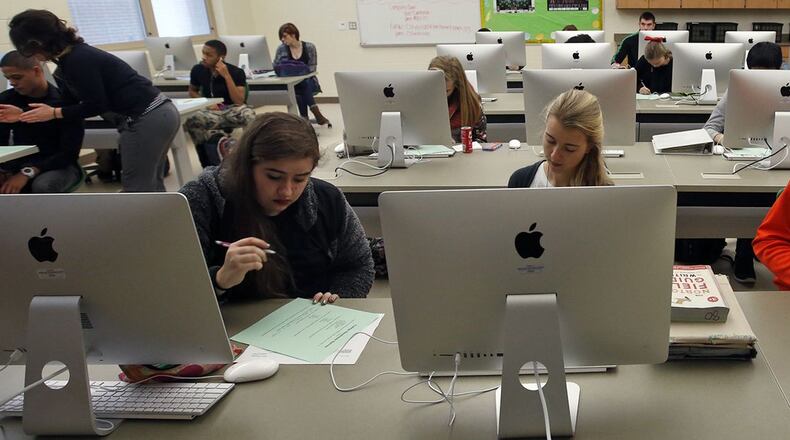RELATED: Families adjusting for weeks of school closures
But there are details still to be worked out, such as the need for a federal testing waiver, as well as what to do about tests some high school students might otherwise need to graduate.
“What’s dictating this are extraordinary circumstances, and they require extraordinary measures to seek that which is fair and right for our students and our communities,” Patterson said in discussing closures tied to the coronavirus outbreak.
Ohio students in grades 3 through 8 take annual tests in English and math. Students in grades 5 and 8 are tested in science. High school students take seven “end-of-course” exams in varying grades depending on when they take each class — two each in math, English and social studies, plus one science test.
For some students, there are high stakes to the tests. In high school, the tests are one of the primary pathways to graduation. And most third graders must achieve a certain score on the reading test to advance to fourth grade.
RELATED: Ohioans over age 65 urged to stay at home
Ohio Department of Education officials said in an online document that the most important consideration at this time should be the health and safety of students and of the community. No state testing will take place during the school closure period, and ODE “will take appropriate action to adjust the state’s testing schedule.”
Asked for further clarity Tuesday, ODE spokeswoman Mandy Minick said the agency is trying to provide the best information it can in a fluid situation.
“I don’t think any of us can really say how the next several weeks are going to go,” Minick said.
Rep. Patterson, a former teacher, said his bill would provide “safe harbor” from any testing-related consequences, calling for test results, if they exist, to be used only for diagnostic purposes. He said discussions continue on how to handle tests’ graduation impact, as well as the domino effect on students’ eligibility for the military.
RELATED: Election postponed due to coronavirus
The bill would eliminate schools’ required number of hours of instruction as long as they make a legitimate effort to educate students, either online or through take-home “blizzard bags.”
Students’ test results also make up the backbone of schools’ annual state report card. Schools that have poor report card grades can be subject to state monitoring, or in the most severe cases, state takeover.
ODE said it is “sensitive to the reality” that report cards in a year like this might not accurately depict school performance, adding that “it is too early to make any final decisions.” Patterson said report card adjustments can be considered after the testing urgency passes.
The five-week window for Ohio’s spring 2020 English tests was set for March 23 to April 24, with each school selecting 15 consecutive school days within that window to administer their tests. The math, science and social studies window was the six weeks from March 30 to May 8, again, with schools picking 15 consecutive days for those tests.
EDUCATION: Ohio college students’ degree rates growing rapidly
The tests are generally given online, but that doesn’t mean students would be able to take them at home. The tests are administered in a controlled school setting, with adults helping students with log-on problems and test proctors monitoring to ensure there’s no cheating.
ODE officials said they will ask the U.S. Department of Education for “maximum flexibility” in meeting federal testing and accountability requirements. Patterson said some federal funding is tied to testing.
Patterson said he hopes the bill will attract bipartisan support, but he’s unsure of a timeline on when the legislature will meet again.
About the Author

